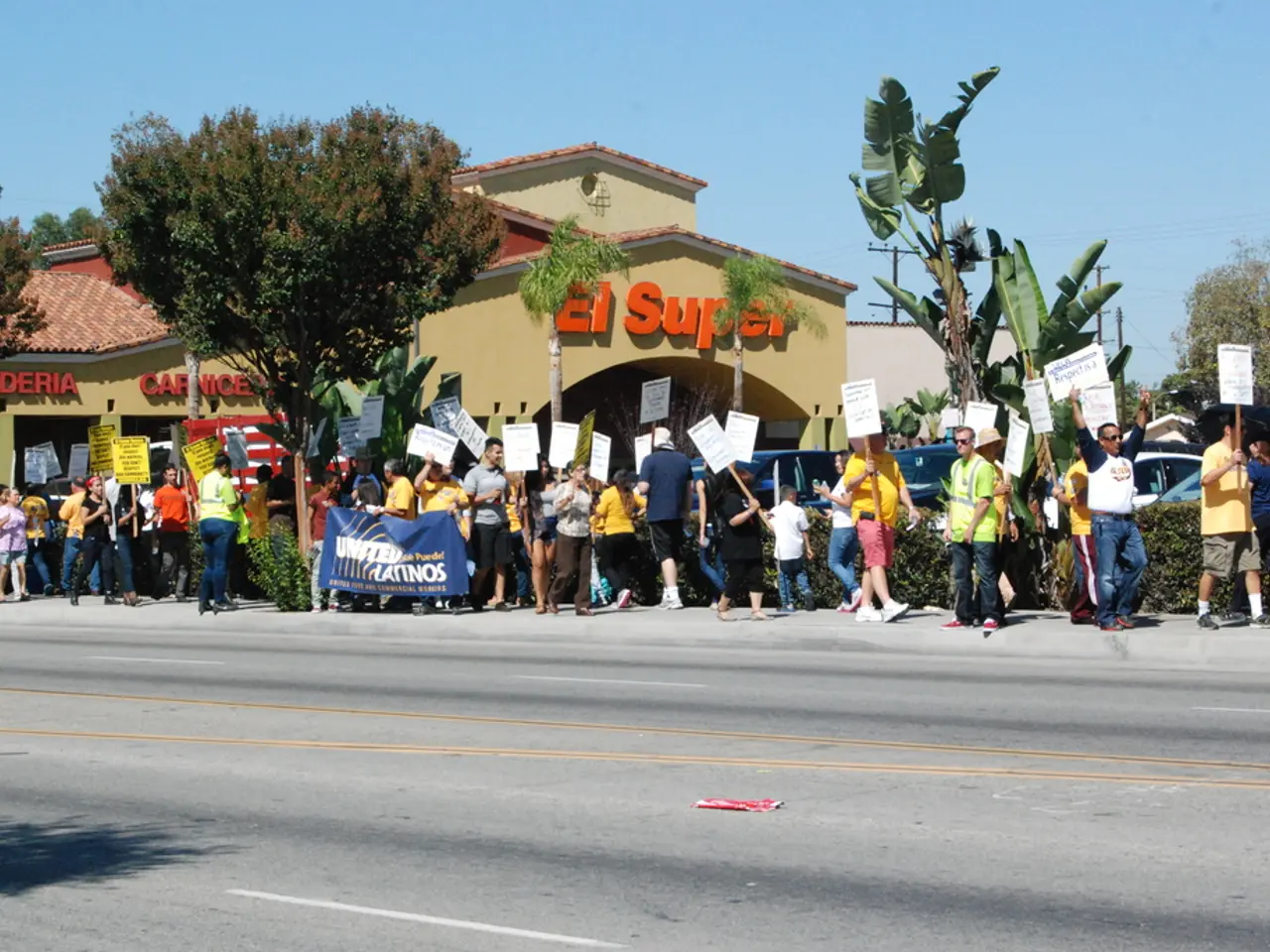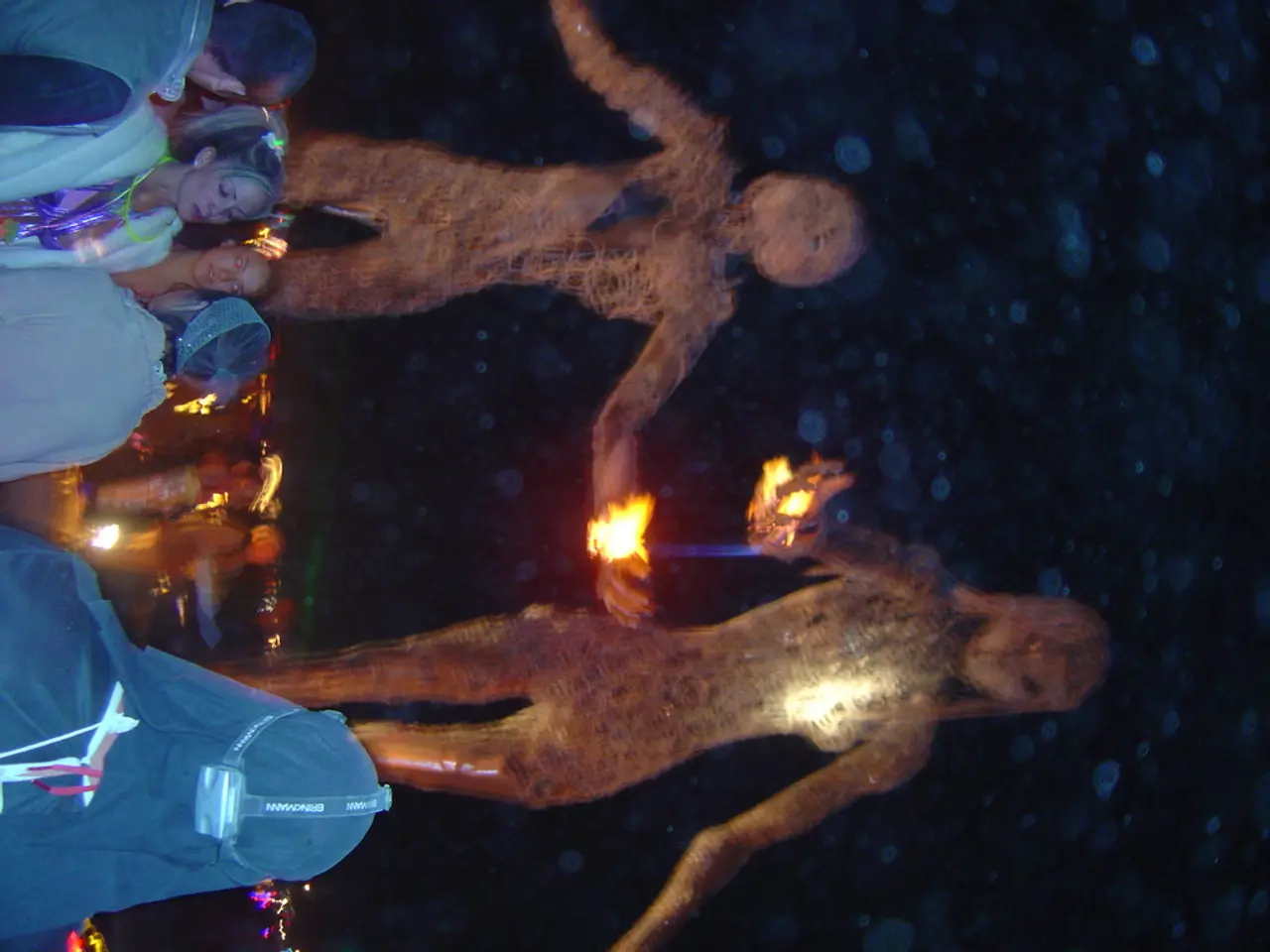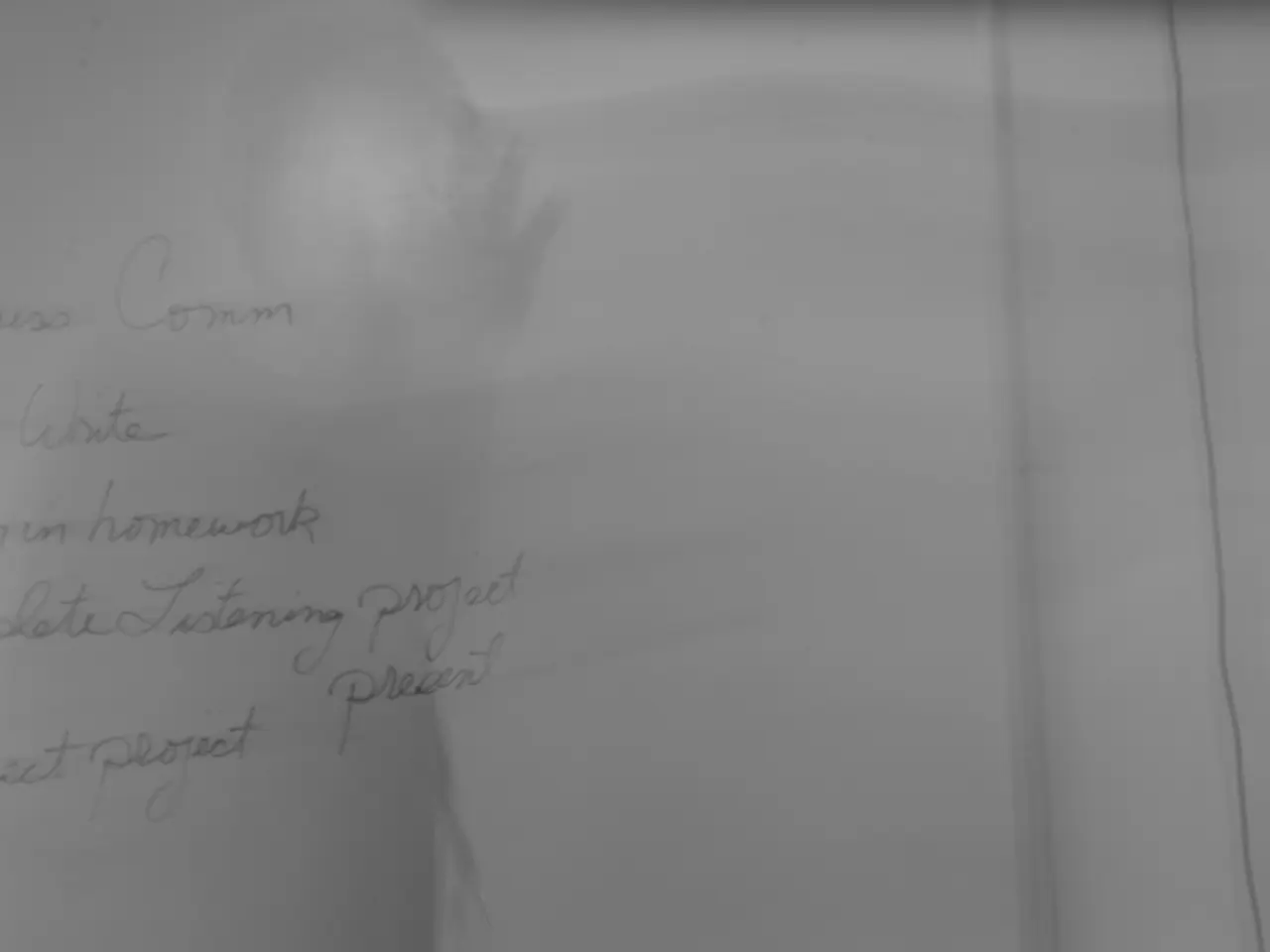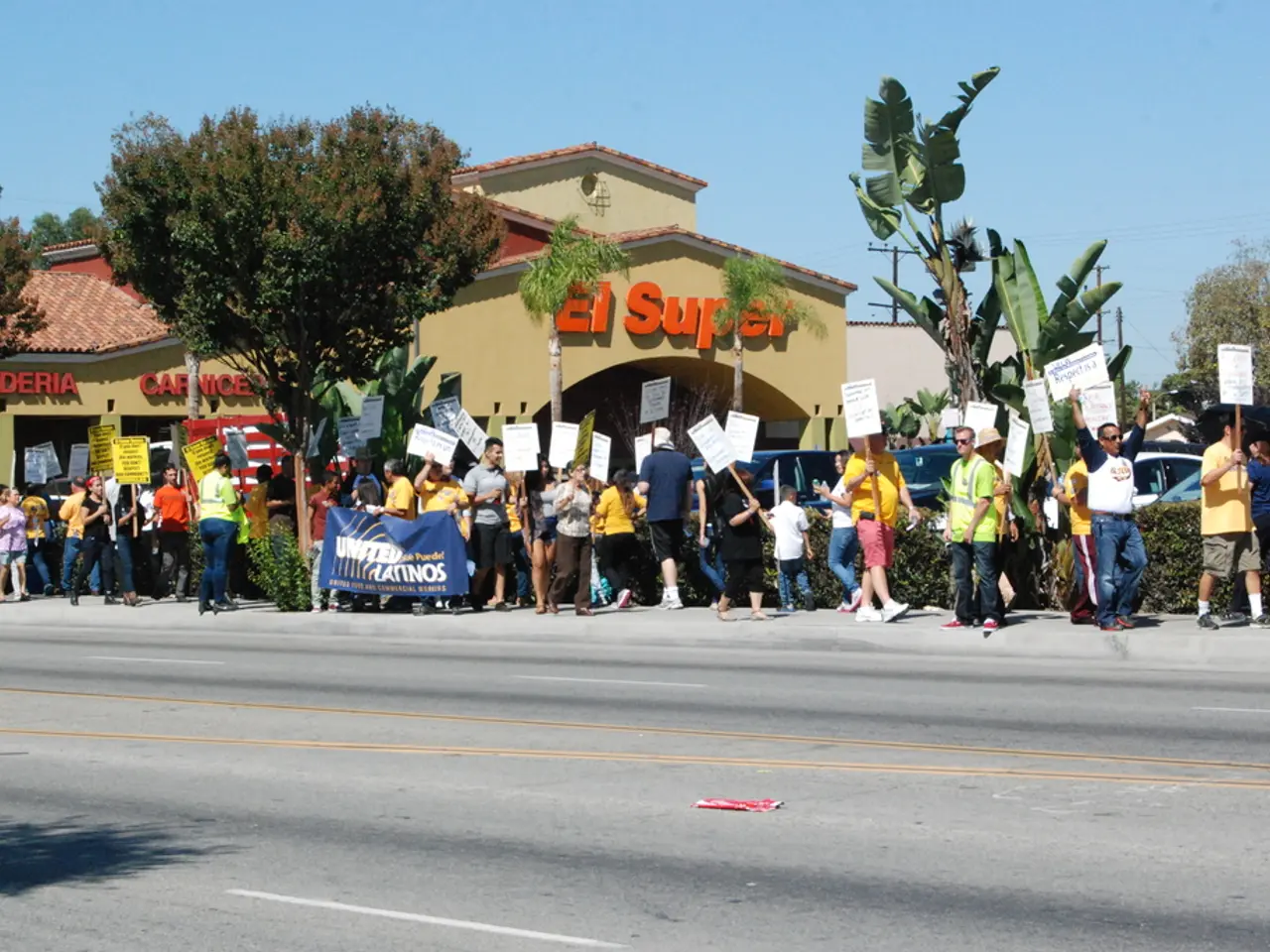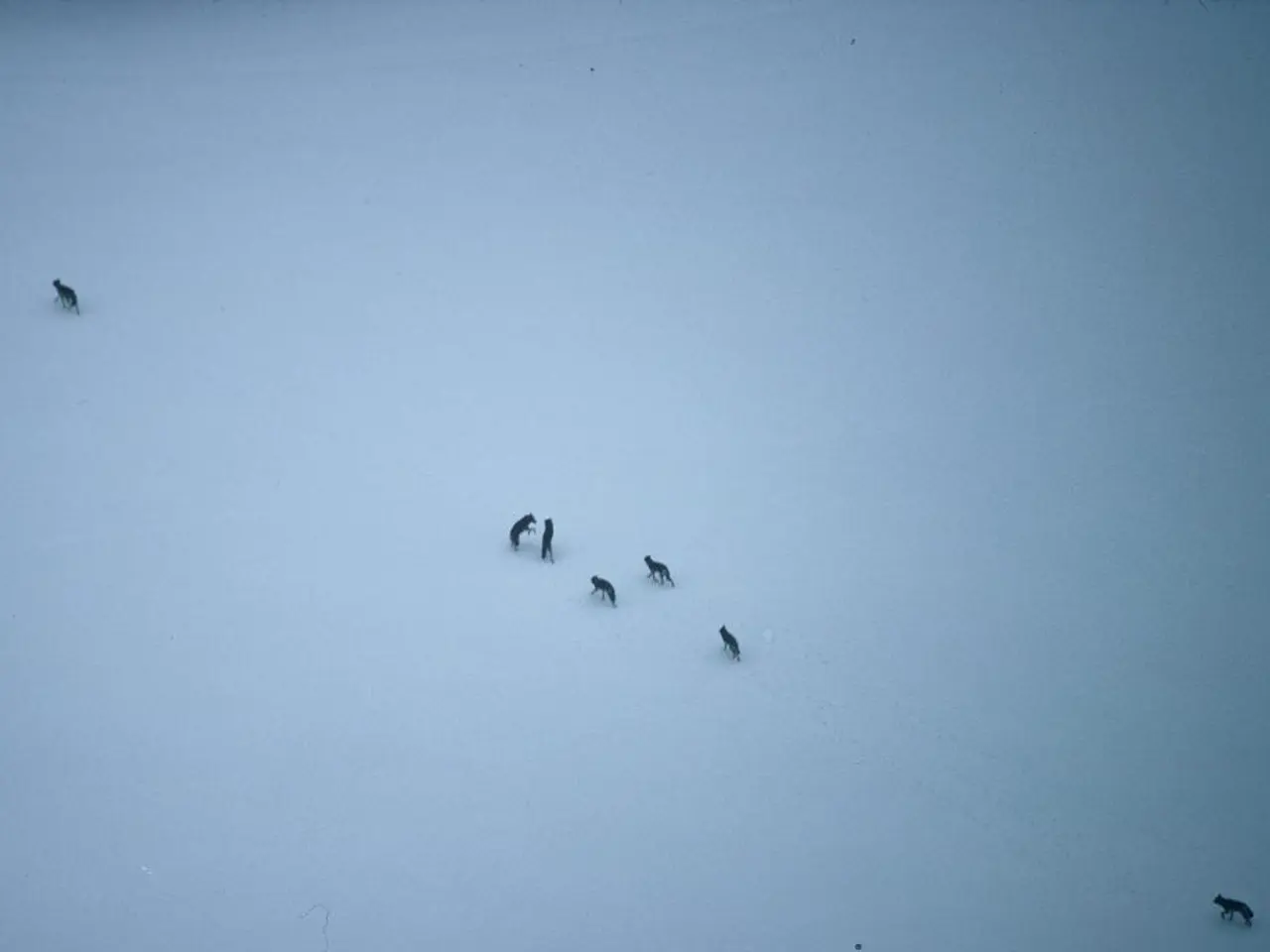Current Events: Union and Alternative for Germany neck and neck in surveys / Chancellor Friedrich Merz sees another drop in popularity / Most Germans oppose increasing retirement age
In early August 2025, Chancellor Friedrich Merz and his government are grappling with historically low approval ratings in Germany. According to the RTL/ntv Trendbarometer and related surveys conducted around August 5, 2025, the government's performance is approved by only 29% of Germans, a 10-point drop from the previous month and the lowest level since Merz took office in May 2025. Conversely, 69% of Germans express dissatisfaction with the government.
Chancellor Merz's personal approval rating stands at 32%, a 10-point decline in a month, with about two-thirds of Germans dissatisfied with his work. The CDU/CSU coalition support has declined to 27%, down 3 points from July. The far-right Alternative for Germany (AfD) polls strongly at 24%, a record level matching April's results. The Social Democrats (SPD) remain stable at 13%, the Greens at 12%, and The Left at 10%.
Additional polls show that only about 31% of voters express trust in Merz regarding Germany’s special responsibility towards Israel, reflecting broader public dissatisfaction with his foreign policy positions. The current level of dissatisfaction with Merz's work is significantly higher than the level of satisfaction among all party supporters combined (32%).
The Union (CDU/CSU) and AfD parties have a combined 25% preference in the latest RTL/ntv Trendbarometer. The SPD, Greens, Left, BSW, and FDP parties have respective preferences of 13%, 12%, 12%, 4%, and 3%. The proportion of non-voters and undecided remains high at 24%, significantly above the proportion of non-voters in the last federal election (17.9%).
The current level of dissatisfaction with Merz's work is significantly higher than the level of dissatisfaction among Union party supporters. Only supporters of the CDU and CSU (Union) remain largely satisfied with Merz's work (76%). The proportion of non-CDU and CSU supporters who are not satisfied with Merz's work is higher than the proportion of satisfied ones.
The SPD, Greens, Left, BSW, and FDP parties have respective preferences of 13%, 12%, 12%, 4%, and 3%. The proportion of SPD supporters who are not satisfied with Merz's work is higher than the proportion of satisfied ones. The Greens and Left parties have the same level of preference (12%). A clear majority of 64% are not satisfied with Merz's work.
The Union and AfD parties' stronghold is under threat, with the Union at a record low in the latest party preferences and Merz's satisfaction rating falling to a new low of 32%. The proportion of non-voters and undecided is significantly higher than the proportion of non-voters in the last federal election, indicating a volatile political landscape.
Other political parties are capitalizing on Chancellor Merz's low approval ratings, as the far-right Alternative for Germany (AfD) has gained record levels of support at 24%, threatening the Union's (CDU/CSU) stronghold. Migration and war-and-conflicts have been heavy topics in policy-and-legislation debates, with Merz scoring low in trust among general-news voters regarding Germany’s special responsibility towards Israel. The general dissatisfaction with the government's performance has led to a spike in preference for opposition parties and an increase in undecided voters, reflecting a volatile political news landscape in Germany.
